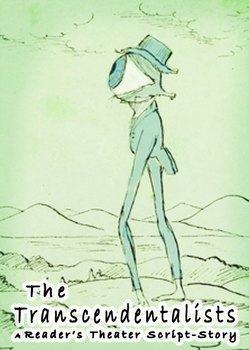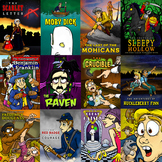The Transcendentalists Reader's Theater Script-Story
- PDF
Also included in
- This bundle includes all of Zachary Hamby's American Literature teaching resources, which include Reader's Theater script-story collections, multiple-choice reading quizzes, and classroom games.Price $149.99Original Price $185.77Save $35.78
Description
Themes of self-reliance, individualism, and civil disobedience run through the works of the Transcendentalist philosophers Emerson and Thoreau. Although their ideas are interesting, their works often seem dry to students. Is there a way to make learning about these philosophers a bit more fun?
This 9-page script-story features the Romantic authors Nathaniel Hawthorne and Edgar Allan Poe (and his talking raven) as they try to insult the philosophy of the Transcendentalists. Henry David Thoreau and Ralph Waldo Emerson arrive on the scene to defend their movement and swap insults with the authors. There are zingers and puns aplenty--mixed in with many relevant facts about the authors' lives and snippets from their philosophical writings. Also popping up for cameos are Emily Dickinson and John Muir, the father of our National Parks, to explain how they were influenced by the Transcendentalists. Eighteenth century literature has never been this fun!
Also accompanying this script-story is a 2-page teacher guide, which includes relevant background information, script summary, essential questions, connections, teachable terms, and recall questions.
To read a FREE PREVIEW CLICK HERE



